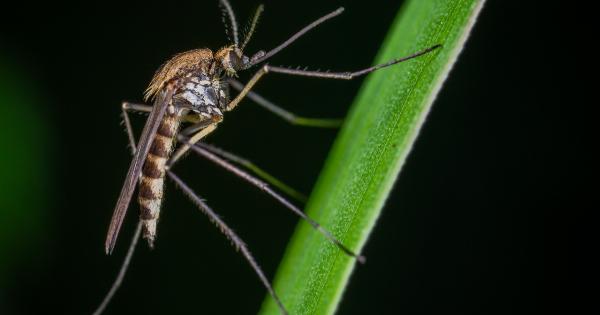As a parent, it is essential to safeguard your children from various health risks, including mosquito-borne illnesses.
Mosquitoes are not only annoying pests that cause itchy bites, but they can also transmit dangerous diseases such as malaria, dengue fever, Zika virus, and West Nile virus. This comprehensive guide will provide you with practical tips and strategies to protect your little ones from these mosquito-borne threats.
Understanding Mosquito-Borne Illnesses
Before delving into the prevention methods, it’s crucial to understand the various mosquito-borne illnesses that pose a risk to your children’s health.
1. Malaria
Malaria is a life-threatening disease caused by the Plasmodium parasite, which is transmitted to humans through the bite of infected female Anopheles mosquitoes.
This illness can cause high fever, chills, flu-like symptoms, and, if left untreated, can lead to severe complications.
2. Dengue Fever
Dengue fever is a viral infection transmitted by Aedes mosquitoes. It can cause a high fever, severe headache, joint and muscle pain, rash, and, in severe cases, can lead to dengue hemorrhagic fever or dengue shock syndrome, which can be fatal.
3. Zika Virus
Zika virus is primarily transmitted through the bite of infected Aedes mosquitoes.
While it usually causes mild symptoms like fever, rash, joint pain, and conjunctivitis, it can pose a significant risk to pregnant women as it can lead to birth defects, including microcephaly.
4. West Nile Virus
West Nile virus is most commonly spread to humans through the bite of infected Culex mosquitoes.
While most people infected with West Nile virus do not exhibit any symptoms, some may develop a fever, headaches, body aches, joint pain, vomiting, diarrhea, or rash. In severe cases, it can lead to neurological complications.
Preventing Mosquito-Borne Illnesses
1. Eliminate Mosquito Breeding Sites
One of the most effective ways to protect your children from mosquito-borne illnesses is by eliminating the breeding grounds for mosquitoes. Mosquitoes breed in stagnant water, so make sure to:.
2. Use Mosquito Repellents
Applying mosquito repellents to your children’s exposed skin can provide a protective barrier against mosquito bites. Look for repellents containing DEET, picaridin, or lemon eucalyptus oil, as these are known to be effective.
However, be sure to follow the instructions carefully and avoid applying repellent to their hands, eyes, or mouth.
3. Dress Your Children Appropriately
When your children are playing outdoors, dressing them in long sleeves, pants, and socks can help minimize the areas of exposed skin where mosquitoes can bite. Choose light-colored clothing, as mosquitoes are attracted to dark colors.
4. Avoid Peak Mosquito Activity
Mosquitoes are most active during dawn and dusk. Limiting your children’s outdoor activities during these times can significantly reduce their exposure to mosquito bites.
If they do need to go outside, make sure they are protected with appropriate clothing and mosquito repellents.
5. Install Window and Door Screens
Make sure that your home is outfitted with properly fitted window and door screens to prevent mosquitoes from entering.
Regularly check and repair any holes or tears in the screens, as mosquitoes can easily slip through these openings to gain access to your home.
6. Use Mosquito Nets
When your children are sleeping, particularly infants or younger kids, ensure they are protected by sleeping under mosquito nets. This extra layer of protection can help prevent mosquito bites while they rest.
7. Keep Your Surroundings Clean
Mosquitoes breed in stagnant water, so it’s essential to keep your surroundings clean and free from any potential water collections.
Regularly empty and clean items that can collect water, such as flowerpots, pet water bowls, birdbaths, and gutters.
8. Seek Professional Mosquito Control
If you reside in an area with a high mosquito population or if you’re concerned about the risk of mosquito-borne illnesses, consider seeking professional mosquito control services.
These experts can assess your property, identify breeding sites, and apply appropriate treatments to minimize the mosquito population effectively.
9. Stay Informed and Follow Health Guidelines
Stay informed about the local mosquito-borne disease situation in your area.
Follow the guidance and recommendations provided by health authorities and take necessary precautions, such as vaccinations, to protect your children from specific diseases if available.
10. Consult a Healthcare Professional
If you notice any symptoms or are particularly concerned about your children’s risk of mosquito-borne illnesses, consult a healthcare professional.
They can provide guidance, perform necessary tests, and offer appropriate treatment options, if required.
Conclusion
Shielding your children from mosquito-borne illnesses is crucial to ensure their well-being and health.
By taking proactive measures such as eliminating breeding sites, using repellents, dressing them appropriately, and following health guidelines, you can significantly reduce their risk of mosquito-borne diseases. Stay vigilant, stay informed, and prioritize their safety above all.






























